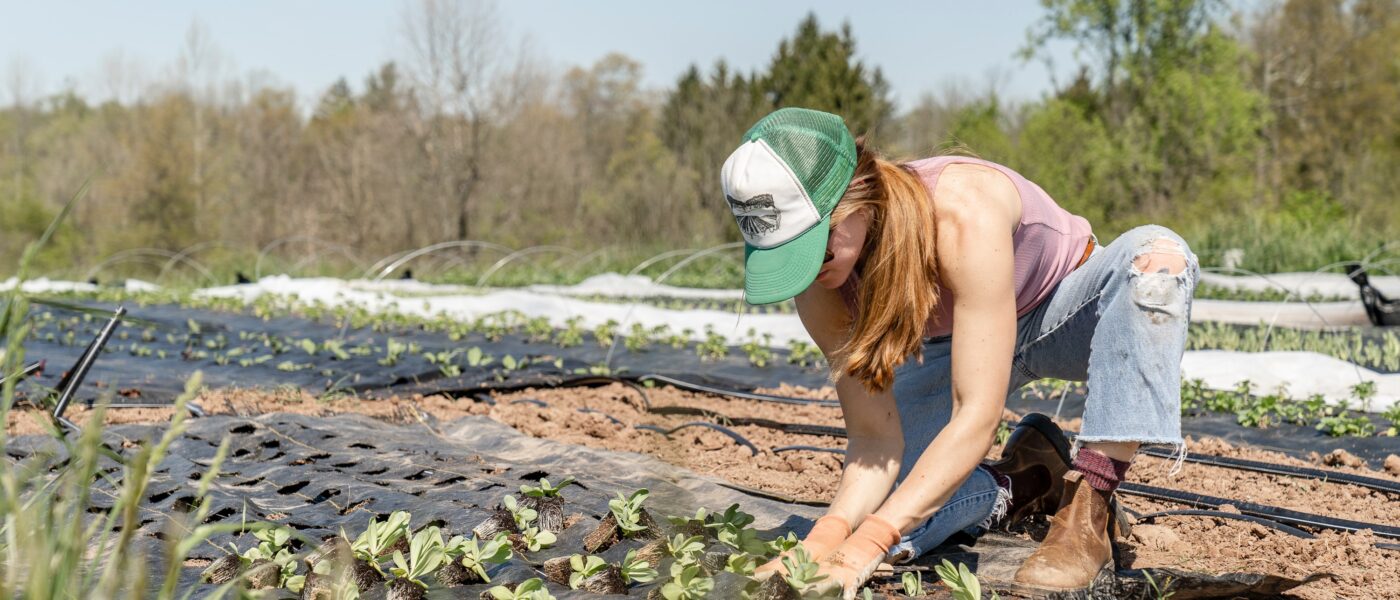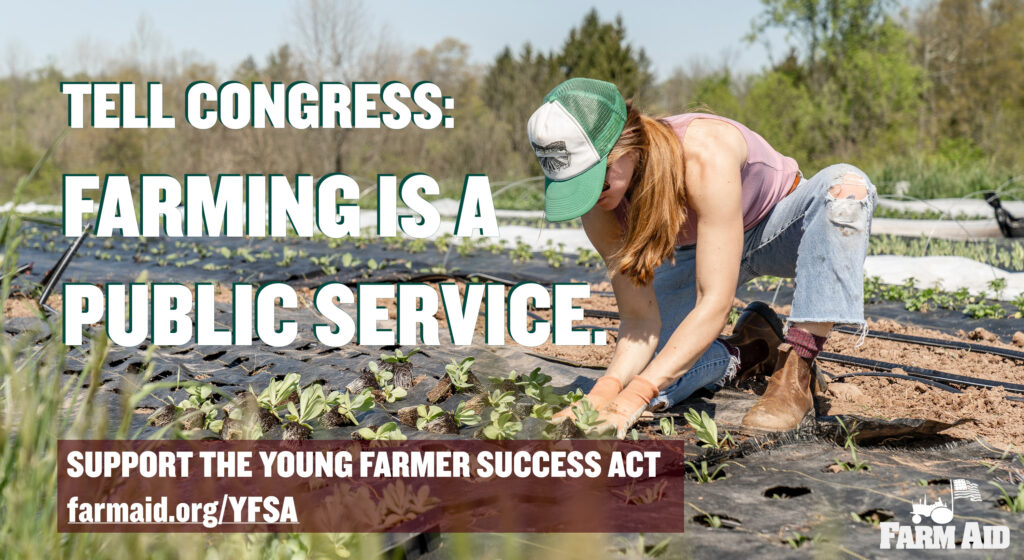Take action now!
The U.S. should recognize farming as a public service.
Support a new generation of farmers by urging your representative to co-sponsor H.R.2728 today!
The student loan debt crisis has crippled the financial prospects of young people across the U.S. and farmers are no exception. A survey conducted in 2022 by the National Young Farmers Coalition (a Farm Aid partner) of 3,300 farmers found that young farmers hold an average student loan debt of $35,660. Thirty-eight percent of these surveyed farmers carried some kind of student loan debt, while sixty-two percent of Black farmers carried student loan debt. According to this survey, student loan debt was listed in the top six challenges that young farmers face.[1]
Luckily, there may be a solution for some farmers struggling with student debt. The Young Farmers Success Act (YFSA), introduced in the House on April 19, 2023, would make farmers eligible for the Public Service Loan Forgiveness Program and would apply to full-time employees at farms or ranches whose gross revenue earnings are at least $35,000 annually.
Similar bills have been introduced in Congress before, but none have passed. Farm Aid is hopeful about the Young Farmers Success Act because it has bipartisan support; it was introduced by Representative Glenn Thomson (R-PA) and has been co-sponsored by other Republicans as well as eight Democrats in the House.
“We must encourage our youth to enter the agriculture workforce and cultivate the next generation of farmers and ranchers,” Representative Thompson said. “Without farm and ranch workers, our country will lose the ability to provide safe and affordable food to our citizens and the world.”
Farm Aid has long championed the view that farmers provide services on par with other public servants; they are stewards of nearly half of our nation’s land, ensure our domestic food supply, and are the backbone of rural communities.
Despite the essential work that farmers do, there are many barriers of entry to this profession, including finding affordable and available land, accessing capital, and finding affordable housing. Our country desperately needs more young farmers: the average age of farmers in the U.S. 57.5 years-old and continues to rise, while beginning farmers only account for twenty-seven percent of the industry.[2]
There are young farmers eager to get on the land and start businesses. However, on top of other financial burdens, many of these young farmers are prevented from farming due to their student loan debt. These young people are hesitant to take on more debt to start a business when farming profit margins and wages are already low. Compounding this issue, beginning farmers with student debt may not qualify for financial assistance due to their existing loans.
Even if they do qualify for business loans, student loan debt can still prevent farmers from growing their businesses. Twenty percent of respondents in the National Young Farmers survey identified student loans as a reason for not taking out additional loans. Rather than being able to spend money on their farm business and invest in infrastructure, new land, or equipment, many farmers instead opt to pay their student loan bills. In fact, most farmers rely on a second, off-farm salary in order to pay student loan bills and many others report not being able to expand their business because of student loan debt.[3] Allowing farmers to qualify for the Public Service Loan Forgiveness Program would allow farm businesses to grow, contribute to rural economies, and ultimately strengthen our agricultural system.
This is an issue of equity as well. Student loan debt is higher for Black, Indigenous, and People of Color (BIPOC) farmers than for their white peers, making this issue an important component of the overall work needed to address inequities in the number of BIPOC American farmers and the USDA’s historic discrimination against Black farmers.
Making farmers eligible for student loan debt forgiveness lowers one of the barriers facing many new and beginning farmers from starting and growing their businesses. We should be incentivizing young people to adopt farming careers and shouldn’t punish farmers for pursuing higher education. It’s time that Americans value farmers in the same way we value other public servants and pass the Young Farmers Success Act.
Sources
1. “Building a Future with Farmers 2022: Results and Recommendations from the National Young Farmers Survey.” National Young Farmers Coalition, 2022.
2. https://www.nass.usda.gov/Publications/Highlights/2020/census-beginning%20-farmers.pdf
3.“Farming is Public Service: A Case to Add Farmers to the Public Service Loan Forgiveness Program.” National Young Farmers Coalition, 2015.
Updated on May 26 to add action link




